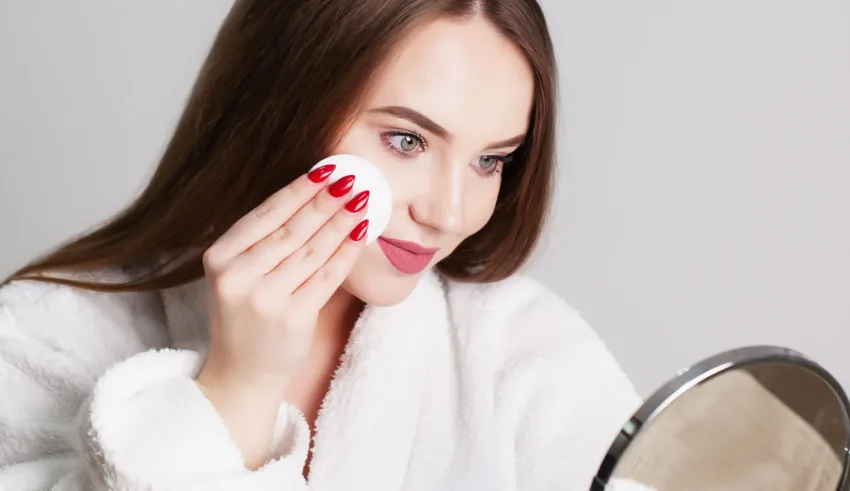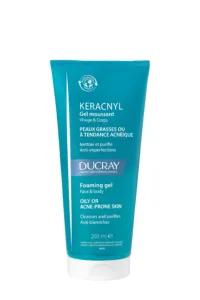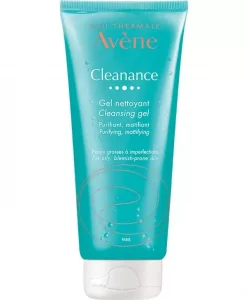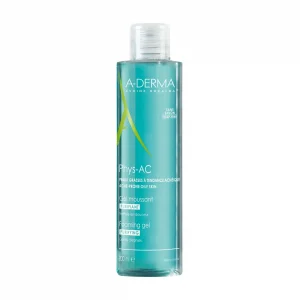
Welcome to this journey where we reveal the hidden link between cleansing and breakouts. In this article from The Dermo Lab and in collaboration with the dermatologist Dr. Jihan Ghali, we’ll reveal the surprising ways in which hygiene affects your skin’s harmony. Get ready to transform your skincare routine and discover the secrets to healthier, blemish-free skin.
What are the basic principles of skin hygiene and health?
The health of your skin is intimately linked to your general well-being. As the body’s largest organ, the skin plays a vital role in protecting you from external threats such as harmful microorganisms, environmental pollutants, and UV rays. Therefore, maintaining good hygiene practices is not just a question of cleanliness; it’s an essential part of preserving the health and vitality of your skin.
What causes breakouts?
Before discussing the importance of hygiene in skin care, it’s important to understand the causes of skin breakouts. Dr. Jihan Ghali notes that breakouts, commonly known as acne, occur when hair follicles become clogged with sebum, dead cells, and bacteria.
This can lead to various types of blemishes, including whiteheads, blackheads, pimples, and even more serious forms such as cystic acne. Several factors can contribute to these blockages and eruptions, and poor hygiene is a major factor.
1- Excessive sebum production: The sebaceous glands in your skin produce an oily substance called sebum. When these glands produce too much sebum, it can mix with dead skin cells and block hair follicles, creating an ideal environment for breakouts.
2- Bacteria: Harmful bacteria that naturally reside on your skin can cause rashes when they enter clogged pores. Following the rules of hygiene can help control these bacteria.
3- Dead cells: The constant elimination of dead skin cells is a natural process. When these cells are not eliminated by cleansing, they can accumulate and clog pores.
Dr. Jihan Ghali points out that acne generally appears on the face, forehead, chest, upper back, and shoulders because these areas of the skin contain the greatest number of sebaceous glands.
What’s the link between hygiene and breakouts?
Maintaining good hygiene plays an essential role in preventing rashes by acting on the factors mentioned above:
1- Cleansing: Regular cleansing of the skin removes excess sebum, dead cells, and other impurities that can clog pores. It’s essential to use a gentle, sulfate-free cleanser suited to your skin type. This doesn’t just mean washing your face, but also your hands, make-up brushes, and anything else that comes into contact with your skin.
People with oily skin are more prone to enlarged pores, acne pimples, blackheads, and whiteheads. That’s why we recommend the following cleansers that are suitable for acne-prone skin.
Ducray Keracnyl Foaming Gel
Eau Thermale Avène Cleanance Cleansing Gel
A-Derma Phys-AC Foaming Gel
2- Avoid touching your face: Touching your face with unwashed hands can transfer dirt and bacteria, which can lead to rashes. It’s a habit many people have without even realizing it. Be aware of it and try to refrain from touching your face unnecessarily.
3- Change your pillowcase: Your pillowcase can accumulate oils, dead cells, and bacteria over time. By changing it regularly, at least once a week, you can prevent these contaminants from coming into contact with your skin.
4- Remove make-up properly: Leaving make-up on overnight can clog pores and encourage breakouts. According to Dr. Jihan Ghali, most makeup is oil-based, which can clog the pores and lead to pimples. But sleeping with makeup on will actually heighten your chance of a breakout. While you sleep your makeup can mix with additional built-up debris and oil from your skin’s surface – the perfect recipe for clogged pores, acne, and blackheads.
By avoiding the application of foundation and blush, the skin is allowed to return to its natural oil balance and hydration
5- Clean tools and accessories: Make-up brushes, sponges and other skincare tools can harbor bacteria and should be cleaned regularly. If you neglect to do so, you risk transmitting these contaminants to your skin.
What’s the role of diet and hydration?
Hygiene isn’t limited to external practices; your internal habits also play a crucial role in maintaining clear skin. Proper nutrition and hydration are essential to overall skin health.
1- Diet: According to Dr. Jihan Ghali, the relationship between acne and diet, particularly dairy consumption and high-glycemic diets, has been studied in recent years. Among the various foods, dairy products and foods with a high glycemic index have been associated with the development of acne.
2- Hydration: It’s essential to drink a sufficient quantity of water to maintain skin hydration and promote the natural elimination of toxins. Dehydrated skin is more prone to breakouts and inflammation.
What is the emotional toll of breakouts?
In addition to the physical impact of breakouts, they can have a significant emotional impact on individuals. Acne can lead to low self-esteem, anxiety, and even depression. The negative effects on mental health underline the importance of good hygiene and skin care practices. By taking control of your hygiene routine, you improve not only your physical health but also your self-confidence and emotional well-being.
Seek professional help
While good hygiene is essential to prevent breakouts, some people may suffer from more persistent or severe acne that requires professional treatment. If you find that over-the-counter products and improved hygiene aren’t effectively managing your breakouts, it may be time to consult a dermatologist. He or she will be able to assess your skin, recommend appropriate treatments, and guide you towards a personalized skincare routine.
Conclusion
Hygiene is more important than you might think when it comes to preventing breakouts and keeping your skin clear and healthy. The invisible link between cleansing and breakouts is vital and should not be underestimated.
By incorporating good hygiene practices into your skincare routine, such as regular cleansing, avoiding touching the face, changing pillowcases, and keeping tools clean, you can significantly reduce the risk of breakouts.
What’s more, by paying attention to your diet, moisturizing, and calling in a professional if necessary, you’ll help achieve the glowing, blemish-free skin you want. Remember, taking care of your skin isn’t just about how you look; it’s also about feeling confident and comfortable in your own skin.
Last Updated on April 16, 2024











